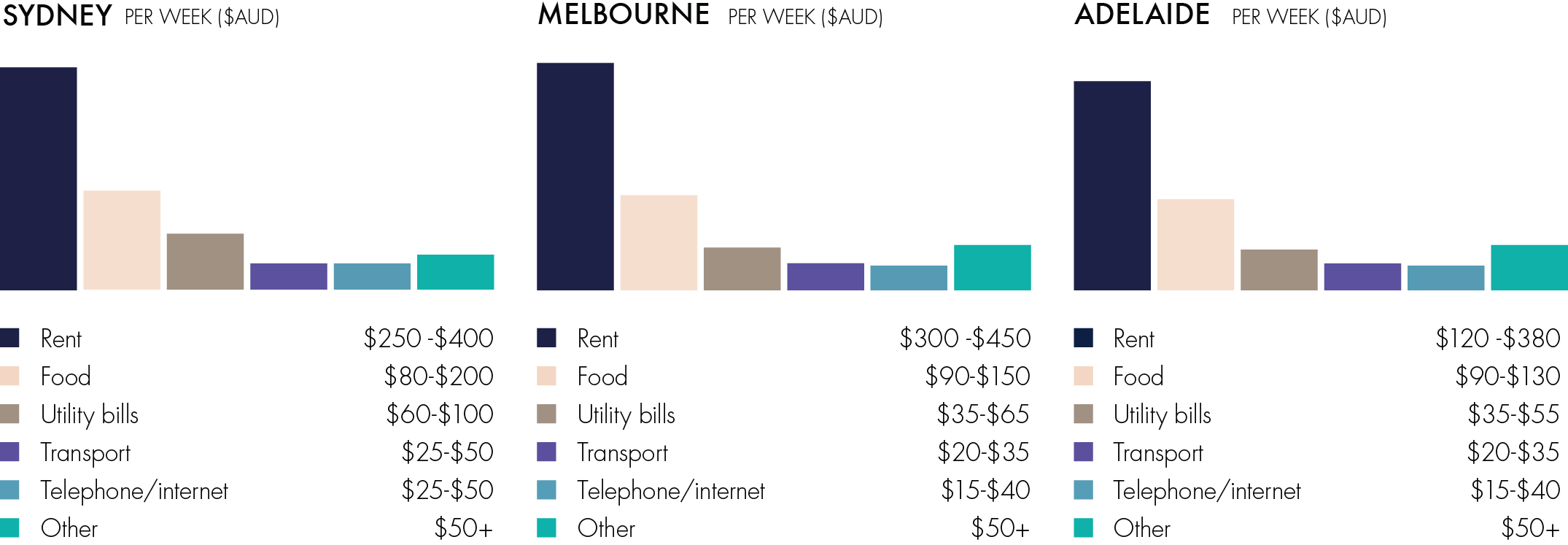Sydney is the capital of New South Wales and Australia’s largest and most famous city.
It is home to beautiful, white sandy beaches (most notably Manly and Bondi), historic landmarks, and fabulous cafés and restaurants.
The stunning harbour provides a dramatic backdrop for two of the city’s most well-known icons - the Sydney Harbour Bridge and the Sydney Opera House.
Sydney boasts a vibrant arts and culture scene with many galleries and museums featuring extensive collections of contemporary works and cultural and historic artefacts. Large and small performance venues play host to theatre, dance and musical productions, and an exciting live music scene.
On the weekend the city is abuzz with locals and visitors attending eclectic arts and crafts, food and clothing markets in locations across the city and surrounding suburbs. These markets complement fabulous shopping precincts featuring designer boutiques, bookshops and second hand/vintage shops, an absolute delight for all fashionistas!
Sydney enjoys a sunny Mediterranean style climate with more than 340 sunny days per year. Summers (December to February) are warm to hot and average maximum temperatures are around 26°. It can also be humid at this time with an average humidity of 65%. Average maximum winter temperatures (June to August) are around 16°. This moderate climate enables Sydney siders to enjoy a laid back, outdoor lifestyle all year round.
For those who wish to explore, to the west of Sydney lies the picturesque Blue Mountains featuring fabulous walking tracks, waterfalls, native bushland and wildlife while to the north is the famous Hunter Valley wine region. Sydney is also a gateway to other great Australian cities including Melbourne and Adelaide and to famous destinations such as the Great Barrier Reef and Uluru.
Cost of living
Comparatively Sydney is one of the more expensive Australian cities to live in. To offset this, wages are commensurately higher.
The guide below shows average basic weekly living costs but does not include the cost of additional textbooks, travel, luxury items, household furniture and equipment, or a car and associated expenses.

Transport
Sydney has an excellent public transport system including trains, buses and ferries connecting all points of the metropolitan area and surrounding hinterland. Sydney airport is Australia’s largest airport and is a major gateway to all Australian and international destinations.
Banking
Banking hours are generally 9.30am - 4.00pm Monday to Thursday and 9.30am - 5.00pm on Friday. Some banks and credit unions offer extended hours during the week and are open on Saturday mornings. Most banks will change foreign currency to Australian dollars.
Travellers cheques are widely accepted, as are major credit cards such as VISA and Mastercard. Diners and American Express credit cards are not as widely accepted.
Working in Sydney
Under current Australian visa regulations, students residing temporarily under a student visa are permitted to work up to 40 hours per fortnight. For more information visit Australian Government Department of Home Affairs.
Overseas Student Health Cover (OSHC)
The Department for Immigration and Citizenship requires holders of a student visa to purchase and maintain OHSC for the entire length of their student visa.
OHSC usually pays 85% of the fee for each consultation with a medical practitioner (including specialists), X-rays and pathology services.




